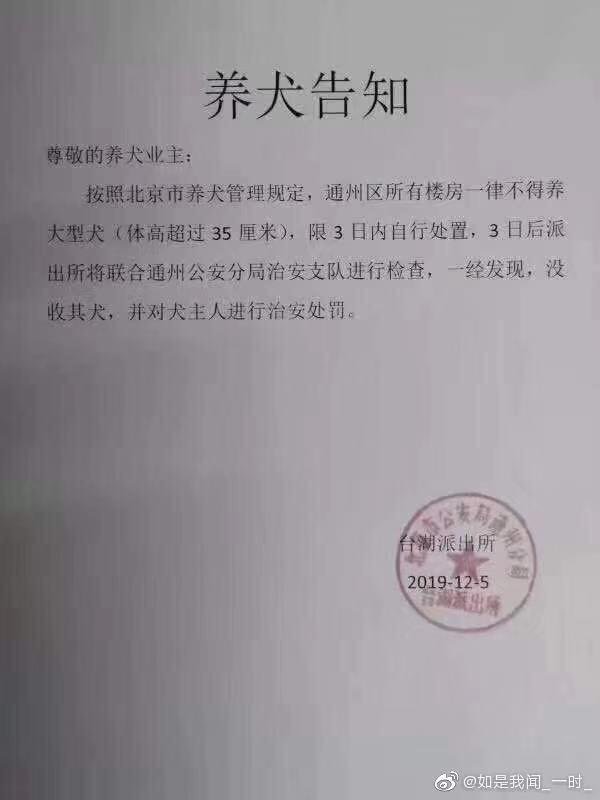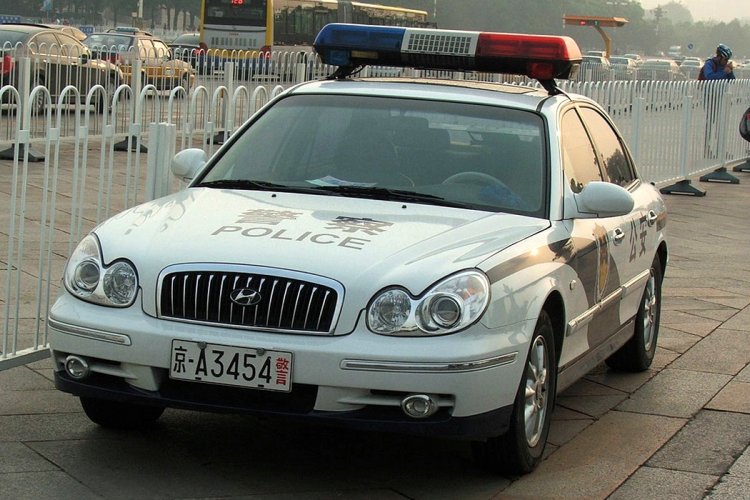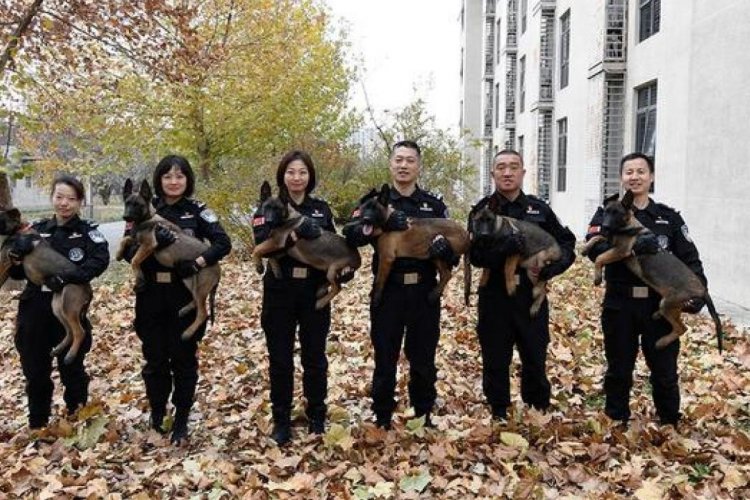Confusion and Confiscations as Beijing Tightens Dog Restrictions
Central Beijing has never been a particularly dog-friendly city – what with the lack of green spaces, heavy traffic, and the occasional unprovoked beating to death of dogs – but it seems like life for man's best friend is about to get more difficult even in the city's suburbs.
Earlier this month, Chinese singer Pu Shu, a resident in Beijing's sub-district of Tongzhou, shared a notice (since deleted) on his Weibo which details new dog regulations in his neighborhood. The notice from his local police station stated that no dogs taller than 35cm would be allowed to be kept in the apartments where he lived and that owners had just three days to relocate oversized dogs. The directive went on to say that the police would be teaming up with the Tongzhou Public Security Bureau (PSB) to confiscate any remaining dogs that did not adhere to the new rules and their owners forced to pay a fine. There is no mention of what would become of impounded dogs.

The news quickly spread online, and with it confusion and anger among animal welfare communities, as well as rumors of mass cullings. Most of the confusion stemmed from the reclassification of Tongzhou as a "central controlled zone," which makes it subject to the same rules as Beijing's downtown districts of Haidian, Shijingshan, Xicheng, Dongcheng, Fengtai, and Chaoyang. Meanwhile, many of the dog owners affected saw the notice as an ultimatum, signaling that their dogs would be put down if they did not relocate their pets. For example, alongside the notice, Pu Shu pled for more time to find a new home for his dog.
Before long, the police clarified the notice, stating:
- That residential areas in Tongzhou have in fact been considered centrally controlled zone since 2006 on account of their growing population. Therefore, large dogs and aggressive breeds should not have been allowed to live in these compounds for the past 13 years.
- Second, the police confirmed that according to the regulation, they have the right to confiscate any dog that violates the law and punish the owner, adding that the three-day notice was merely a grace period to give owners enough time to find new lodgings for their dogs.
The police also told a reporter that the posting of the notice coincides with complaints from residents about people with oversized or aggressive dogs, people walking their dogs without a leash or not cleaning up after their dogs, or that owners were walking their dogs in the hallway and garage of the apartments. Finally, the police said they gave warnings to several residents with oversized dogs in early November, suggesting to them that they relocate their dogs, to no avail.
While the new regulations have caused much uncertainty and worry among the Beijing pet-owner community, the laws regarding canines in Beijing have not actually changed. Based on information found on the Beijing Public Security Bureau's official website, this is what we could find with regards to the Beijing Canine Restriction laws:
- The "central controlled zone" is largely confined to Beijing's six central-most districts, however, according to a government directive from Jun 7 this year, the government retains the right to modify the definition of a district from "generally controlled" to "controlled" based on the population density, which is used to explain why the residential apartment areas in Tongzhou have been subject to stricter regulations since 2006.
- According to updated restrictions from June this year, large dogs and aggressive breeds are defined as dogs whose height exceeds 35cm, measured from the shoulder. The PSB offers a helpful list of larger breeds, such as Tibetan mastiff, dobermann, greyhound, chow chow, and akita, among others, which therefore can not be kept as pets in central controlled zones.
- Certain exceptions to the height rule exist, for example for service dogs that assist the visually impaired or disabled.
- Under Beijing law, all dogs must be registered with the PSB, otherwise, they are automatically considered stray, and can be taken by the police at any time. Registration must be renewed annually, between May 1 and Jun 30, regardless of when the dog was initially registered.
As we know, rules can often be changed at the whim of local police so it's best to always keep an eye out for notices in your building or neighborhood and ask a Chinese friend or colleague to help translate if necessary.
For details on how to register your dog, click here.
Images: Tom Arnstein, Pu Shu (via Weibo)







